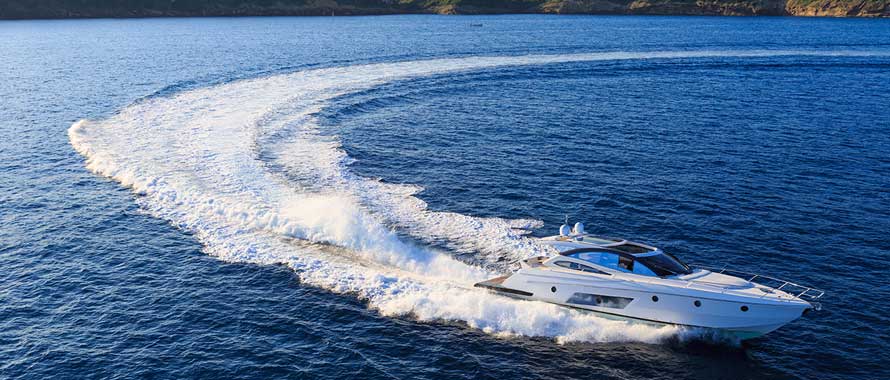Destruction in Texas and Florida from Hurricanes Harvey and Irma reached $200 billion1, with damage estimates to recreational boats topping $655 million as a result2. Despite this, boat sales are slated to rise another 5 to 6 percent, adding to the already 12 million recreational boats currently in use in the United States3,4.
To shed light on Recreational Marine Insurance for brokers and agents, Insurance Market Source caught up with Bill Gatewood, Corporate Vice President & Director, Personal Insurance, Burns & Wilcox, and Matthew Evans, Marine Underwriter, Burns & Wilcox.
Insight #1: Realistic and viable hurricane plans are a must.
Gatewood says “Carriers are much more interested now in viable hurricane plans that are followed and implemented. In years past, insurers would be comfortable after confirming and reviewing a vessel’s hurricane plan. Now, this will be looked at much more deeply in the underwriting process. Markets are going to get much more stringent on these plans following last year’s losses, with carriers taking extra steps to confirm the realistic viability of that plan. Additionally, we expect new underwriting guidelines to follow asking for prior hurricane plans to be reviewed to see how the boat fared.”
Insight #2: Deductibles are swelling.
Evans claims, “Right now, we are watching deductibles increase. Before these hurricane losses, minimum deductibles were around 5 percent on wind and hail, and now it is growing to 10 percent. Alongside this, markets are beginning to review storage location more closely. Private docks that are covered were once positive. This has changed due to an increasing number of collapse losses where covered docks damaged the boat or caused it to sink. This is true across North America, not just on the coasts. If policyholders are looking to find replacement coverage, it is recommended that brokers and agents compare apples to apples to ensure they are not missing coverage that they once had.”
Insight #3: Recreational boats can cross into the commercial insurance world.
Gatewood states, “In locations around the country where boating is culturally engrained, there can be some confusion surrounding personally-owned recreational boats that may sporadically be used for business purposes. People in these areas tend to do a lot of fishing, and occasionally they will take passengers with them, creating a charter exposure. Boats may also be used for entertaining clients, leaving a potential business exposure. Additionally, home rentals present exposures when a pontoon boat, for instance, is available for use. In these examples, boats can cross over into the commercial insurance world and are easily handled if all of the information is disclosed up front. Policies can be written to allow for a specific number of charters per year. These nuances may complicate submissions for brokers and agents that do not work with Recreational Marine insurance every day, and a trusted specialty insurance partner can help clear this up to make sure clients are fully covered.”
Insight #4: Boat owner experience matters.
Evans asserts, “Brokers and agents need to understand the experience that their insured has with boats and navigating the local waters. If an insured has sailed in the same part of Florida for 30 years with no accidents, for instance, they can receive credits up to 15 percent off, in some cases. Moreover, underwriters will confirm and review an owner or captain’s motor vehicle history during the application process. This provides markets with a good portrayal as to how they will navigate a boat, and a clean record will help save the client money. If, for instance, a client has five speeding tickets in the report, this will have an adverse effect on the submission.”
Insight #5: Covering recreational marine can increase a broker’s or agent’s book of business.
Gatewood, says “The policy language for Recreational Marine Insurance is more in-depth compared to a standard auto insurance policy, and some retail brokers and agents may lack confidence if they do not work in marine on a daily basis. Brokers may even turn the business away or send it someplace else, instead of partnering with a marine center of excellence that can educate and act as an extension of their agency. Brokers do not have to give up the revenue, and they should know that the boating community is a very tight knit group. When seasoned boat owners discuss insurance, it generates a lot of referral business – more so than arguably any other type of insurance. On top of that, brokers who are able to take care of a client’s boat will often cover the rest of their insurance needs. For hobbyists, the boat is most important, and we are seeing a very strong correlation here. By the same token, if a broker turns away a client for boat insurance, they stand to lose the entire account.”
When the economy is strong, boat sales tend to perform better, suggests Gatewood. As with any niche, clients prefer to associate themselves with those who have common interests. Brokers and agents should look to gain a deeper understanding of the recreational marine business, to service clients on a more personal level.




